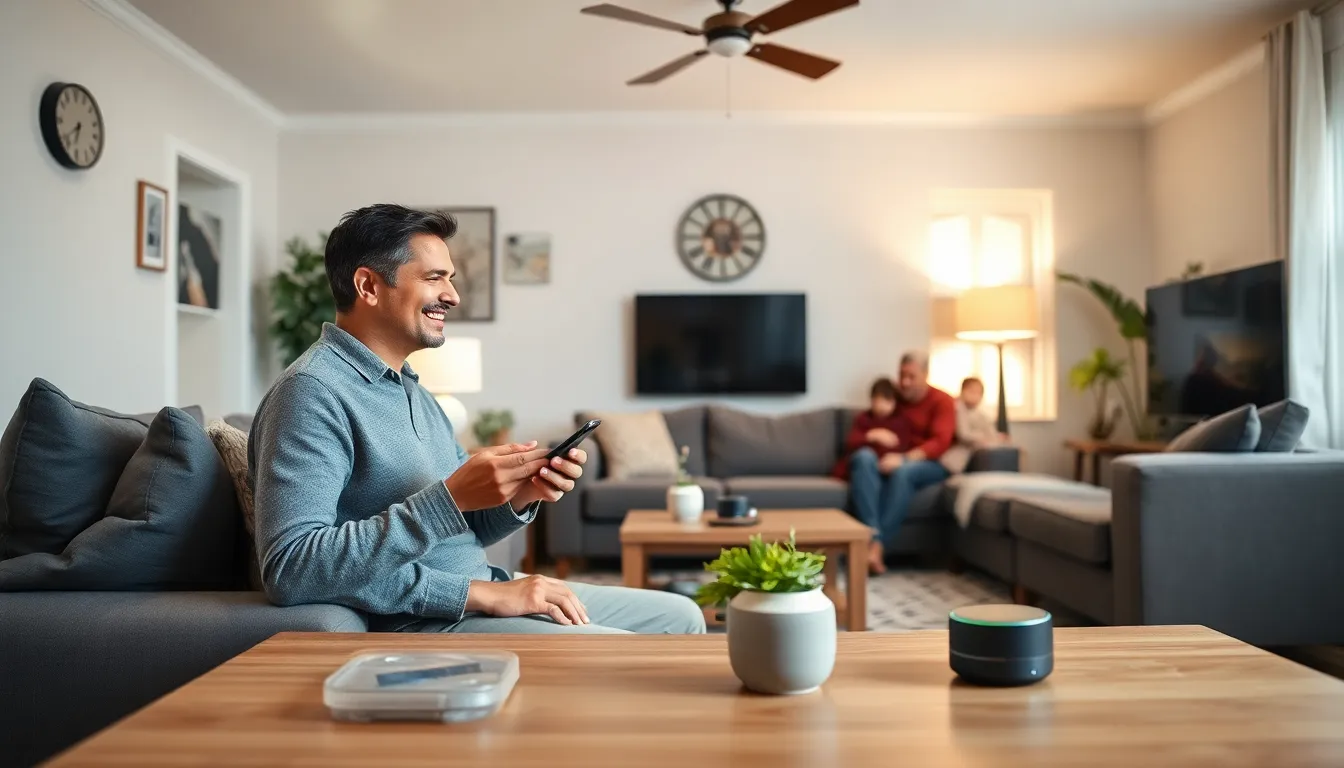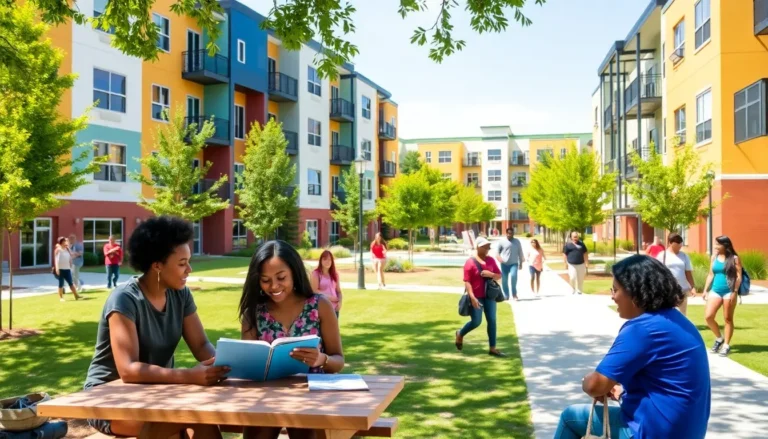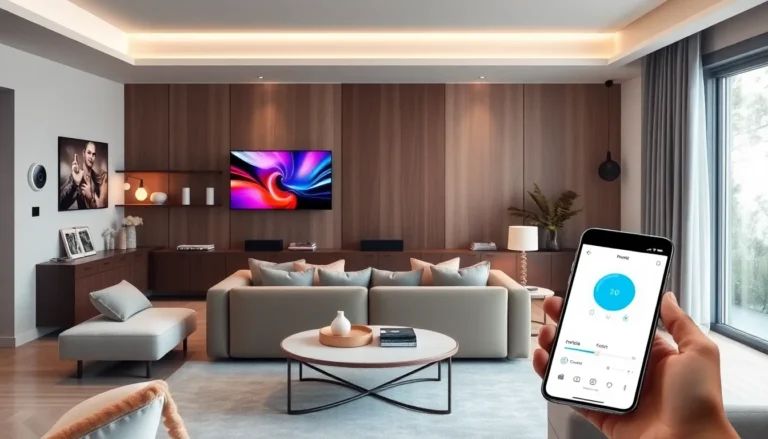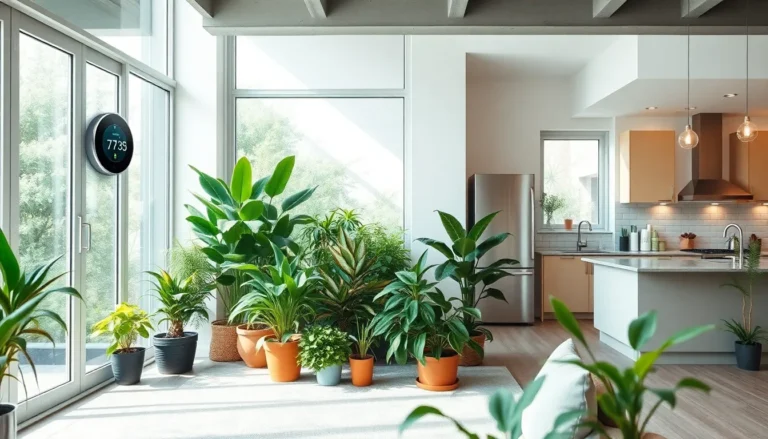Table of Contents
ToggleIn a world where procrastination reigns supreme, proactive home living is the superhero we didn’t know we needed. Imagine a home that runs like a well-oiled machine, where laundry doesn’t pile up like a mountain and the dishes don’t evolve into a science experiment. Proactive living isn’t just a buzzword; it’s a lifestyle choice that transforms chaos into harmony, one checklist at a time.
Understanding Proactive Home Living
Proactive home living emphasizes anticipation and efficient management of daily tasks. This approach fosters a structured environment, reducing stress and enhancing overall well-being.
Definition and Key Concepts
Proactive home living involves actively organizing tasks before they become overwhelming. Efficiency plays a crucial role in this lifestyle choice. Key concepts include prioritization, preparation, and routine building. Utilization of tools like checklists simplifies tracking tasks. Strategies focus on maintaining cleanliness, scheduling chores, and keeping organized spaces. Engaging family members in this process creates a collective effort toward a harmonious living climate.
Benefits of Proactive Home Living
Proactive home living provides numerous advantages that significantly improve quality of life. Increased organization leads to reduced clutter, promoting mental clarity. Enhanced efficiency enables individuals to complete tasks swiftly, freeing time for other activities. Stress reduction results from fewer last-minute scrambles to complete household work. Financial savings may occur due to planned grocery shopping and reduced emergency repairs. Additionally, proactive habits instill discipline, contributing to a more fulfilling daily routine.
Strategies for Implementing Proactive Home Living

Implementing proactive home living significantly enhances daily management routines. Two core strategies include organizing your space and incorporating smart technology.
Organizing Your Space
Creating an organized environment reduces distractions and enhances productivity. Decluttering regularly helps in maintaining order. Designating specific areas for belongings ensures easy accessibility. Labeling containers and shelves provides clarity, making it easier to find items. Grouping similar items together supports efficient use of space. Establishing a regular cleaning schedule reinforces consistent organization. Involve family members in organizing efforts to promote teamwork. Visual reminders like charts or checklists can keep everyone on track.
Incorporating Smart Technology
Utilizing smart technology streamlines everyday tasks. Automated devices like smart thermostats can optimize energy use while enhancing comfort. Smart lights allow for controlled ambiance and energy savings through scheduling. Home assistants help manage schedules and make task reminders effortless. Investing in smart appliances promotes efficiency in laundry and dishwashing. Consistent updates of apps ensure that users take advantage of the latest features. Encourage family members to engage with these tools to foster seamless living. Integrating technology creates a connected environment that supports proactive living.
Health and Wellness in Proactive Home Living
Proactive home living greatly impacts health and wellness, promoting an environment that supports well-being.
Creating a Healthy Environment
Creating a healthy environment involves regular maintenance and thoughtful planning. Incorporating air purifiers can enhance indoor air quality, reducing allergens and pollutants. Maintaining plants indoors also contributes to a soothing atmosphere and improves air freshness. Utilizing natural cleaning products minimizes harmful chemicals, supporting overall health. Proper organization of spaces prevents clutter, reducing stress and promoting mental wellness. Choosing ergonomic furniture helps maintain physical health, providing comfort and safety during daily activities. This proactive approach fosters a nurturing environment, where individuals thrive in both body and mind.
Mindfulness and Stress Reduction Techniques
Mindfulness and stress reduction techniques play crucial roles in proactive home living. Practicing daily meditation promotes mental clarity and reduces anxiety. Establishing designated quiet spaces encourages relaxation and mindfulness activities. Engaging in deep breathing exercises helps center thoughts and alleviate tension quickly. Regular physical activity, such as yoga or stretching, enhances emotional well-being and reduces stress levels. Journaling provides an outlet for thoughts and feelings, allowing for reflection and clarity. Prioritizing these techniques cultivates a holistic approach, fostering a peaceful, balanced home life.
Sustainable Practices for Proactive Home Living
Sustainable practices play a crucial role in proactive home living. Implementing eco-friendly solutions fosters a healthier environment while simplifying daily routines.
Eco-Friendly Products
Using eco-friendly products reduces harmful environmental impacts. Compostable cleaners, biodegradable toiletries, and plant-based detergents represent great choices for sustainability. These products not only minimize toxicity but also enhance indoor air quality. Regularly opting for reusable items, such as stainless steel straws or cloth bags, cuts down on single-use plastic. Choosing sustainably sourced materials contributes to ethical consumption and supports responsible manufacturing processes. Prioritizing these alternatives creates a more sustainable home and supports community health and wellbeing.
Reducing Waste and Energy Consumption
Reducing waste and energy consumption achieves both environmental and financial benefits. Adopting recycling practices helps divert materials from landfills and promotes resource conservation. Implementing energy-efficient appliances decreases energy bills while minimizing carbon footprints. Regularly checking for leaks in plumbing and sealing drafts can lead to significant energy savings. Additionally, using LED lighting reduces electrical consumption and lasts longer than traditional bulbs. Setting up a composting system creates nutrient-rich soil for gardening while cutting down on waste. These actions embody proactive home living, creating a positive impact on personal and global scales.
Embracing proactive home living can significantly enhance daily life by fostering a sense of order and tranquility. By prioritizing organization and efficiency individuals can create a nurturing environment that reduces stress and promotes well-being. This lifestyle not only streamlines daily tasks but also encourages sustainable practices that benefit both personal health and the planet.
Engaging family members in this journey further strengthens bonds while cultivating a culture of responsibility and teamwork. As individuals adopt these strategies they’ll likely find that the rewards extend beyond a tidy home, leading to improved quality of life and a more harmonious living space. Proactive home living is more than just a trend; it’s a sustainable approach to creating a thriving home environment.







